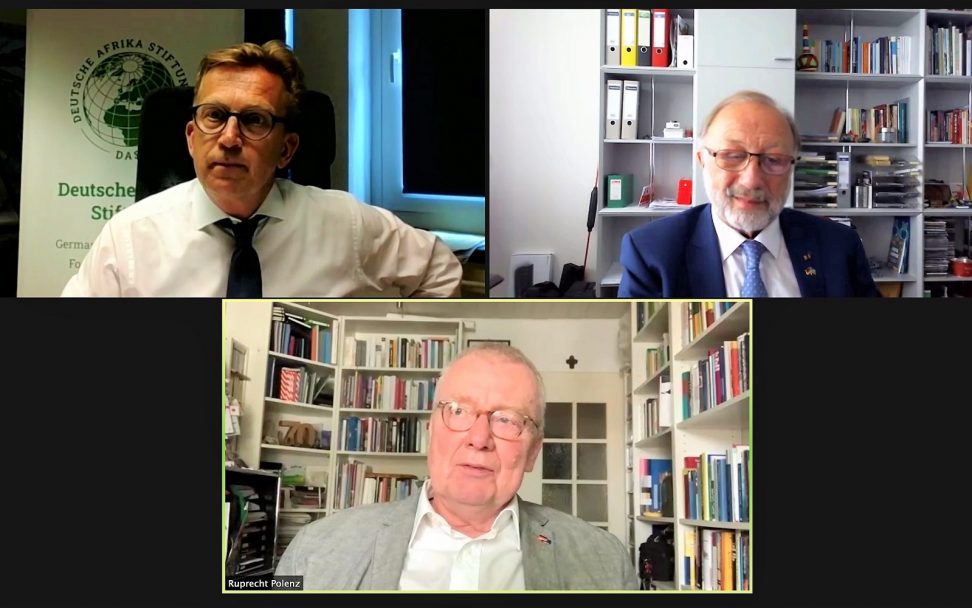After nearly six years of negotiations, Namibia’s and Germany’s negotiators, Dr Zedekia Ngavirue and Ruprecht Polenz, agreed in mid-May on a “joint declaration” initialed by both negotiators. It describes what the troops of the German Empire did to the Herero and Nama between 1904 and 1908, pledges to pay 1.1 billion euros over 30 years, and is intended to form the basis of a reconciliation process that could see German President Steinmeier travel to Namibia in the second half of the year to issue an apology. The German Bundestag could pass a declaration before the summer break.
Why did the negotiations drag on so long? Can the agreement claim to have the approval of the majority of the Herero and Nama people? How does the amount now pledged differ from “traditional development aid”? And why did Germany not bother to come to terms with and evaluate the events until more than 100 years after they took place?
These and a number of other questions were at the focus of the online discussion, to which the German-Namibian Society and the German Africa Foundation invited.
Programme:
Welcome Remarks:
Klaus A. Hess, President of the German-Namibian Society
Moderation:
David Schwake, Secretary General of the German Africa Foundation
Discussion:
Ruprecht Polenz, German chief negotiator
Closing Remarks:
Klaus A. Hess, President of the German-Namibian Society
Ruprecht Polenz, born in 1946, was Chairman of the Foreign Affairs Committee of the German Bundestag from 2005 to 2013 and Secretary General of the CDU from April to November 2000. Since November 4, 2015, he has been the German government’s representative in negotiations with Namibia on how to deal with the genocide committed by imperial troops against the Herero and Nama people.
